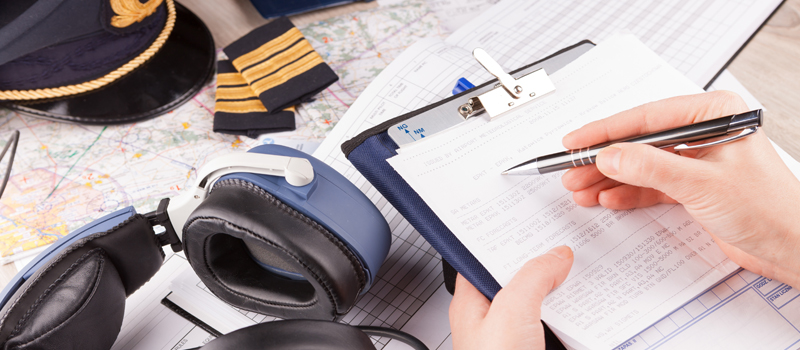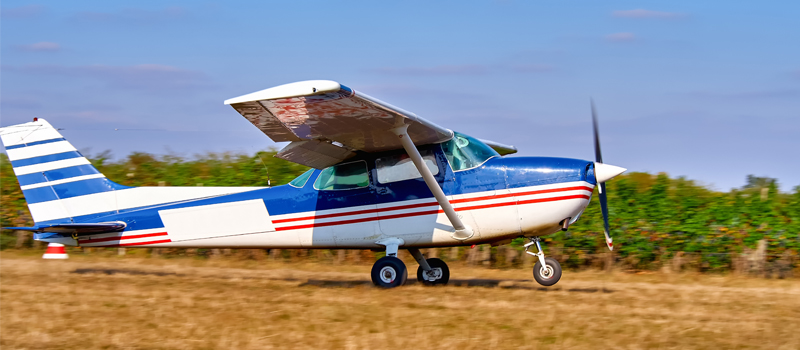Before learning to fly light aircraft, many people ask this whether you need a degree. Technically, the answer is straightforward. You do not need to have a degree in order to be a pilot, and many pilots the world over have never even set foot in a college or university.
That is the simple answer, but the reality if a lot more complicated. For a start, the answer depends on what sort of pilot you want to be. Are you simply looking at becoming a private pilot and flying for fun, perhaps taking friends up for an aerial jaunt now and then? Or do you want to make your living as a pilot, and are probably looking at working for the airlines?
If you want to work for the airlines, the answer will also depend on what country you want to work in, and perhaps what size or type of airline you are intending to fly for.
So let us take a look at each of these issues in turn.
Becoming a Private Pilot
Private pilots simply fly for fun and are not allowed to take payment or earn a living from their flying. To obtain a Private Pilot’s Licence or PPL, you simply need to find a flight school, have an introductory or discovery flight, and then do the practical flying course, passing a test at the conclusion of it.
You will also need to pass several PPL ground or written exams, on subjects as apparently diverse as principles of flight, navigation, and meteorology. These exams are not all that difficult, although some basic knowledge of maths and science is needed. However, an ordinary high school education should be enough for most people to be able to study for, then undertake and pass these exams. But if you have had no education at all then you might struggle with them.
Becoming a Professional Pilot
If you want to be a professional pilot, then a lot more is required. You will need to do the complete course for a Commercial Pilot’s Licence or CPL. This will involve a more difficult and intensive flying course than for the PPL. It will be followed by some much more in-depth and detailed written exams. You might struggle to understand the course for these exams without a degree-type education, although it is certainly possible. I have taught students who had left school at an early age, and although they found it hard, most of them were able to pass the CPL ground exams, perhaps after a little extra coaching.
In most of Europe, that is all that you need to do. This is also true of some smaller regional airlines in the USA. However, many larger US airlines do require you to have a bachelor’s degree. Looking further afield, the same is true of the majority of airlines in the Far East, and also some other areas of the world.
So it really looks as though, while not being an absolute requirement, it could be a good idea for a prospective pilot to get a degree if at all possible.
What Type of Degree is Best?
It really does not matter that much what degree subjects you study. None of the airlines specify any particular subject, just that they want you to have a degree. Having said that, many people want to do something related to aviation, and it is possible in some colleges to major in aviation, aeronautical science, aerospace engineering, or a similar subject. This could be looked on favorably by a future employer, and the knowledge gained would most definitely help with your CPL ground exams.
However, you can do something totally unrelated to aviation if you wish. In fact, some people choose some other type of science or engineering degree. And it is not unknown for a prospective pilot to study something completely unrelated to science or maths. The choice is entirely yours.
Getting a degree in something completely different can in fact be a very good insurance policy. Much of the time the working life of an airline pilot is extremely precarious when it comes to job security. To put it bluntly, there is very little job security in the longer term. Pilots need to pass stringent medical tests at regular intervals throughout their working lives, and even something like failing one aviation medical could mean you suddenly find yourself out of work, perhaps permanently. So it could be sensible to have another career to fall back on if necessary.
The Future of Aviation
Aviation fluctuates more than many careers, and the state of the airlines is constantly changing. Sometimes airline pilots are in short supply and find themselves in demand, and they can pick and choose the jobs they want. At other times there may be a surplus of pilots competing for the few jobs available. When that happens, it could be a great advantage to have a degree, particularly one related to aviation or aerospace engineering.
Conclusion
Considering all of the above, it is clear that those wanting to fly for a living would be well advised to get a college degree if it is at all possible. It will give you more opportunities and could provide the difference between always having work, and finding yourself without a job in the future.
What subject should you choose? That is a difficult question to answer, but perhaps a subject related to aviation, but leading to a different job, would be the best bet. Aerospace engineers are nearly always in demand, so if this interests you at all, it could be a good back-up career plan.
However, if for some reason you cannot get a degree, don’t give up all idea of being a professional pilot. You could perhaps become a military pilot and simply pass the army exams. Or you could work for a smaller airline, or in a different part of the world, where pilots are not required to have degrees.
So if you want to be a professional pilot, simply look at what is best for you. Then go ahead and take the first steps along that road…



